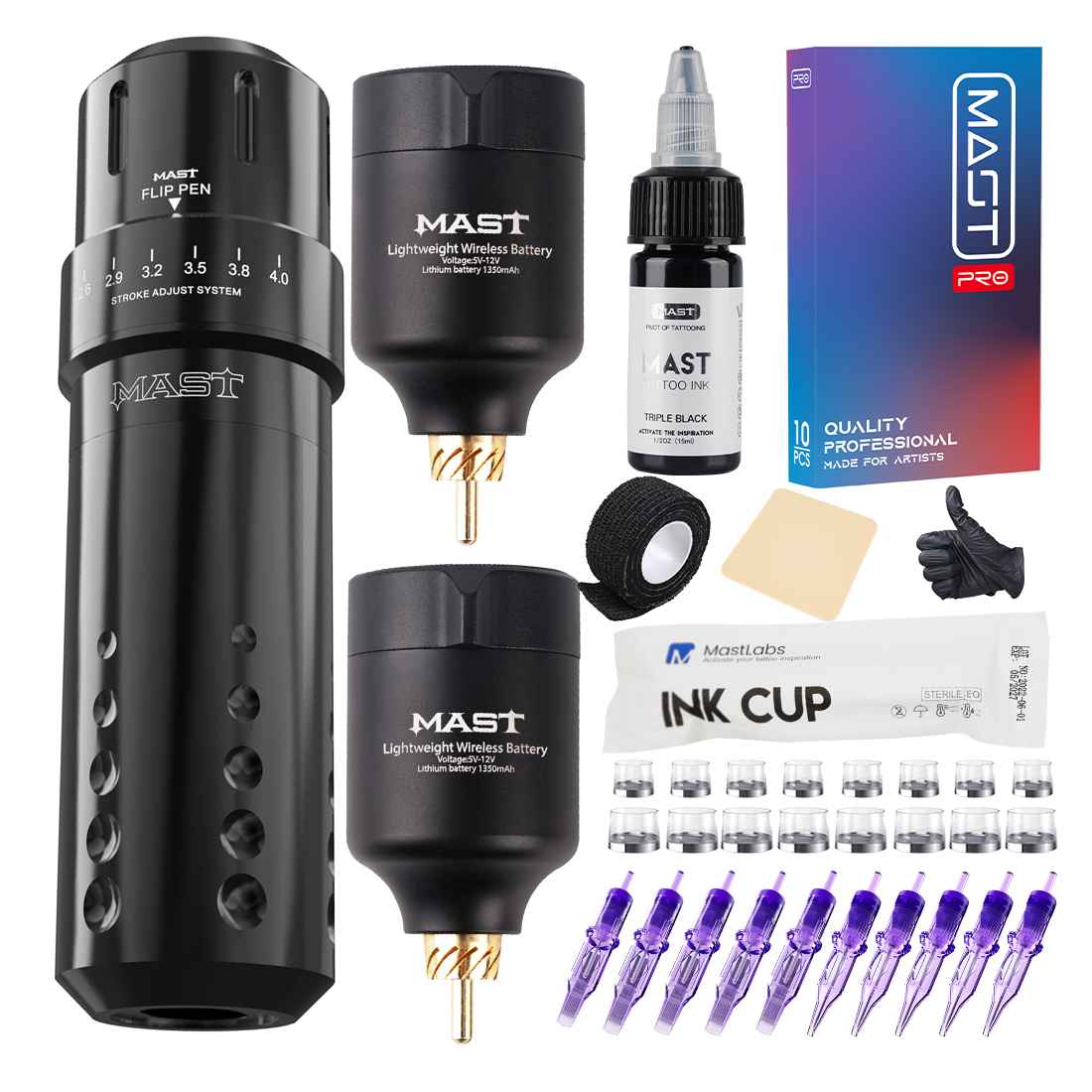Tattoos have become increasingly common in recent decades. With body art going mainstream, even professionals like psychologists are getting inked. But can psychologists have tattoos without jeopardizing perceptions of their capabilities or professionalism?
Yes, psychologists can have tattoos but there are certain considerations that you as a psychologist have to take note of.
This comprehensive guide examines the considerations psychologists should weigh regarding body art.
Topics include:
- Pros and cons of psychologists having tattoos
- Workplace policies on psychologist tattoos
- Appropriate tattoo placement for psychologists
- Tattoo ideas and designs for psychologists
- Covering up psychologist tattoos
- Meanings behind psychologist tattoos
- Advice for psychologists considering a tattoo
We’ll also answer key questions like:
- Can psychologists have hand tattoos?
- Can psychologists have sleeve tattoos?
- Can psychologists have neck tattoos?
- Can psychologists have facial tattoos?
- Can psychiatrists have tattoos?
The Pros and Cons of Psychologists Having Tattoos
There are reasonable grounds for a psychologist to get a tattoo. But also some potential professional drawbacks to evaluate.
Pros of Psychologists Having Tattoos
Self-expression – Like many clients, psychologists get tattoos to reflect beliefs, interests, values and personality. Tattoos can represent important milestones or memorials.
Artistry – Psychologists appreciate tattoos as an art form requiring technique, vision, and creativity. The psychological aspects of tattoos may intellectually appeal as well.
Conversation piece – Tattoos can facilitate rapport with clients who feel a psychologist’s body art helps the psychologist understand their tattoo motivations better.
Reduced stigma – Visible psychologist tattoos may help destigmatize tattoos in the minds of conservative or older clients who associate them only with delinquency.
New perspectives – Knowledgeable psychologists may gain insight into client psychoanalysis, emotions, fantasies, and unconscious motivations manifesting through their tattoo choices.
Self-assuredness – Psychologists may feel empowered or more self-confident when tattoos help them reclaim autonomy over their bodies after trauma.
Cons of Psychologists Having Tattoos
Professionalism perceptions – Regardless of skill, some clients will not take a psychologist seriously if they have prominent visible tattoos, viewing body art as unprofessional.
Job opportunities – Private practices and clinics serving more conservative clientele may not hire psychologists with visible tattoos that could dissuade certain clients.
Safety concerns – Gang-affiliated or prison tattoos could alarm some clients or undermine a safe therapeutic environment. Provocative images may also invite sexual harassment.
Scope of practice matters – Forensic psychologists in courtroom settings likely need to adhere to more conservative professional standards than therapists.
Hygiene factors – Unsterile tattooing carries infection risks. Allergies can develop to even safe tattoo inks. MRI complications are also a concern for some tattoos.
Stigma remains – Despite mainstreaming, tattoos still carry negative connotations in some demographics. Psychologists should recognize that bias exists.
Also Read: Can Lawyers Have Tattoos Without Ruining Their Careers? Everything You Need to Know
Workplace Policies on Psychologist Tattoos
Before getting tattooed, psychologists should understand policies of any organization employing them.
Hospital and Clinic Policies
Most hospitals and clinics do not prohibit employees having inconspicuous tattoos covered by scrubs. However, some facilities discourage psychologists from having prominent visible tattoos that could upset more conservative clients. Policies are stricter in forensic psychology. Know policies.
Private Practice Office Policies
Private practices generally have greater flexibility on body art than facilities serving a wide clientele. Solo practitioners may freely display tattoos. But those with more conservative clients should consider discreet placement and cover up options when necessary. Communicate with partners to align.
University Policies
University counselling centers tend to be most permissive of psychologists’ self-expression through tattoos. However, psychologists should still maintain attire meeting campus professionalism standards when interacting with students and staff beyond counselling sessions.
Appropriate Tattoo Placement for Psychologists
Where on the body a tattoo is placed determines how easily a psychologist can conceal it when advantageous to do so. These placements enable personal expression without impeding client rapport.
Discrete Psychologist Tattoo Placements
Back – A back tattoo is completely hidden in professional clothing, allowing personal meaning without affecting professional life.
Chest – Chest tattoos are largely covered up by collared shirts and blouses. Place designs above bra lines for discretion.
Shoulders – Shoulder blade and upper shoulder tattoos stay hidden under most professional tops but allow personal expression in casual settings.
Feet – Top of foot and top of toe tattoos hardly show in closed shoes. Avoid wrapping artwork along feet and ankles.
Ankles – A small ankle tattoo is rarely seen below pants but allows subtler self-expression with skirts or when barelegged.
Calves – Calf tattoos only show in shorter skirts or bare legs. Since most professionals avoid exposing much leg skin, calf tattoos offer privacy.
Bolder Psychologist Tattoo Placements
Forearms – Forearm tattoos are visible in short sleeves but easily covered by long sleeves. Avoid extending designs onto hands or fingers.
Legs – Thigh or leg tattoos above the knee only show when wearing shorts, bathing suits, or short skirts. Keep thigh designs towards the top and small in scale.
Behind ears – Small behind-the-ear tattoos are partially obscured by hairstyles. Limit designs to just behind ears, not wrapping around them.
Most Problematic Psychologist Tattoo Placements
Hands/fingers – Hand and finger tattoos cannot be hidden during client interactions. They also carry stigma, regardless of artistic merit. Most organizations prohibit hand tattoos.
Neck – Neck tattoos are widely viewed as unprofessional in mental health fields. Even small back-of-neck tattoos risk violating workplace policies. Use caution.
Face – Facial tattoos are considered self-sabotage for aspiring mental health professionals. They imply psychological issues contraindicated for effectively assessing clients.
Head – Scalp, forehead, and temple tattoos are problematic. They can distract, intimidate or upset clients during vulnerable therapy sessions.
Also Read: Can a Pilot Have Tattoos? Exploring Ink in the Cockpit
Tattoo Ideas and Designs for Psychologists
Psychologists should thoughtfully curate tattoos upholding both personal meaning and professional perceptions. Consider these tips when selecting psychologist-appropriate themes and artwork:
Meaningful imagery – Choose subject matter holding poignant significance to you: personal growth milestones, tributes to loved ones, spiritual guides, quotes on resilience.
Empowering symbols – Select visually appealing designs that exude strength, wisdom, creativity, beauty,hope or other empowering attributes.
Discreetly symbolic – Opt for abstract images, geometry, nature themes, and subtle symbols over literal representations to convey meanings discreetly.
Artistic style – Favor specialty artist original work and opt for an elevated aesthetic. Avoid clichéd, trendy or unsophisticated styles.
Strategic themes – Consider subject matter likely to resonate with your typical client demographics. Florals, cultural symbols and family crests are broadly appealing.
Calming elements – Peaceful nature scenes, mandalas, waves, spirals, trees, and celestial images evoke relaxation ideal for therapy environments.
Empathetic quotes – Short meaningful phrases about hope, compassion, unity, resilience, growth and humanity make positive ties to a psychologist’s values.
Covering Up Psychologist Tattoos
There will likely be times when discretely covering tattoos is advantageous for psychologists. Here are techniques to hide body art temporarily:
Clothing choices – Wearing long sleeves, pants, tights, closed shoes, layers, scarves, and jewelery keeps tattoos covered. For chest tattoos, favor crew neck tops.
Tattoo cover up makeup – Cosmetic tattoo concealers effectively obscure body art for short durations when necessary. Dermablend, Kat Von D, and Mehron are reputable brands.
Compression garments – Arm compression sleeves and neutral nylon hose easily hide limb tattoos during professional functions. Be sure skin can still breathe.
Flesh-tone bandages – Self-adhesive bandage strips and medical tape discreetly mask small tattoos on limbs when concealed for a day or less. Avoid wrapping entire limbs.
Strategic accessories – Bracelets, cuffs, rings, watches, long hair and scarves conveniently disguise wrist, hand, finger, neck and décolletage tattoos.
Reasonable explanations – If questioned on a tattoo peeking through, briefly own its meaning maturely. But avoid over-focusing on body art rather than professional capabilities.
Also Read: Can Accountants Have Tattoos? Cash Meets Ink
Meanings Behind Psychologist Tattoos
Psychologists’ tattoos often relate to intellectual passions, personal growth, and a desire to help others. Common symbolic themes include:
Tributes – Names, portraits, dates, signatures and memorial designs pay homage to influential mentors, thinkers, colleagues, clients and family members.
Empowerment symbols – Phoenixes, suns, arrows, lions, trees, and lotuses represent resilience, clarity, direction, courage, grounding and rising above adversity.
Quotes – Inspiring or philosophically meaningful phrases remind psychologists of purpose, strength, hope, humanity and compassion.
Mandalas – Circular geometric motifs symbolize unity, personal harmony, the universe’s interconnectedness and wholeness.
Butterflies – Butterfly imagery signifies transformation, personal growth, freedom, beauty, nature’s fleeting moments and revival.
Flowers and nature – Blooms, leaves, trees, landscapes and celestial elements reflect creativity, growth, peace, empathy, beauty and human vulnerabilities.
Meaningful words – Short yet poignant personalized phrases, dates, names, and life mottos commemorate people, passions and milestones.
Advice for Psychologists Considering a Tattoo
Psychologists contemplating body art should weigh the following guidance:
- Thoroughly research workplace policies on psychologist tattoos before getting anything permanent. Even if allowed, use discretion.
- Consider perceptions. Clients wishing to build trust in you during vulnerable times may unconsciously judge tattoos as undermining your wisdom and emotional maturity.
- Avoid symbols of violence, vulgarity, hysteria, darkness or fringe beliefs that could disturb clients or manifest inner turmoils psychologists have moved past.
- Select artwork meticulously, since quality tattoos require large investments. Poor quality or trendy tattoos reflect badly on judgment and credibility. Go to the most reputable artists.
- For psychologists establishing careers or building private practices, wait until securely established with psychologist tattoos. Once renowned expertise is proven, body art matters less.
- Recognize views and values evolve. Weight whether you may regret permanent tattoos later after circumstances or belief changes.
- Discreet placements allow personal expression without judgment or stigma. Back, chest, shoulder and calf tattoos are invisible in professional settings.
- Temporary tattoos, subtle jewelry and clothing permit self-expression without permanent effects. Gradual exposure allows assessing others’ reactions.
Also Read: Can a Social Worker Have Tattoos? [Ink and Advocacy]
Conclusion
We’ve answered the popular question, “Can psychologist have tattoos?” You’ve seen from this article that surely psychologist can have tattoos.
Even though mainstream tattoo acceptance is growing, and this includes in mental healthcare, psychologists must still carefully weigh body art’s professionalism impact.
With prudence and strategic discretion, most can attain balanced self-expression without detriment.
However, some clinical settings remain conservative. Psychologists should thoughtfully assess environment norms and mindfully manage perceptions to leverage tattoos to their benefit, not detriment.
Frequently Asked Questions About Psychologist Tattoos
Many psychologists have additional questions about balancing body art with their career path. Here are answers to some common psychologist tattoo FAQs.
Can Psychologists Have Hand Tattoos?
Most clinical settings prohibit hand tattoos, even small designs, as overly unprofessional for client interactions. Hand tattoos risk undermining perceptions of expertise and judgment. Discreet wrist tattoos may be reluctantly accepted if minimal and easily covered. But hands should be avoided.
Can Psychologists Have Sleeve Tattoos?
Full arm sleeve tattoos are controversial for psychologists. Long sleeves can cover them, but any exposure could alarm sensitive clients. Forearm tattoos pushing conservative workplace limits are more feasible but still risky for psychologists seeking broad appeal and opportunities.
Can Psychologists Have Neck Tattoos?
Neck tattoos are widely viewed as incompatible with psychology professionalism. Even small back-of-neck tattoos may violate policies. Front neck tattoos especially undermine credibility and should always be avoided. Significantly limit neck tattoo scope.
Can Psychologists Have Facial Tattoos?
Facial tattoos are considered career-limits for psychologists, implying mental health issues that ethically preclude assessing others’. A teardrop, for example, dangerously suggests inner turmoils at odds with emotional stability required for treating trauma survivors. Simply avoid face tattoos.
Can Psychiatrists Have Tattoos?
Like psychologists, psychiatrists with extensive medical training ideally uphold conservative professional standards when interacting with patients. However, psychiatrists have greater latitude once established. Discreet tattoos covered by scrubs pose fewer issues than highly visible tattoos in sensitive therapy settings.






